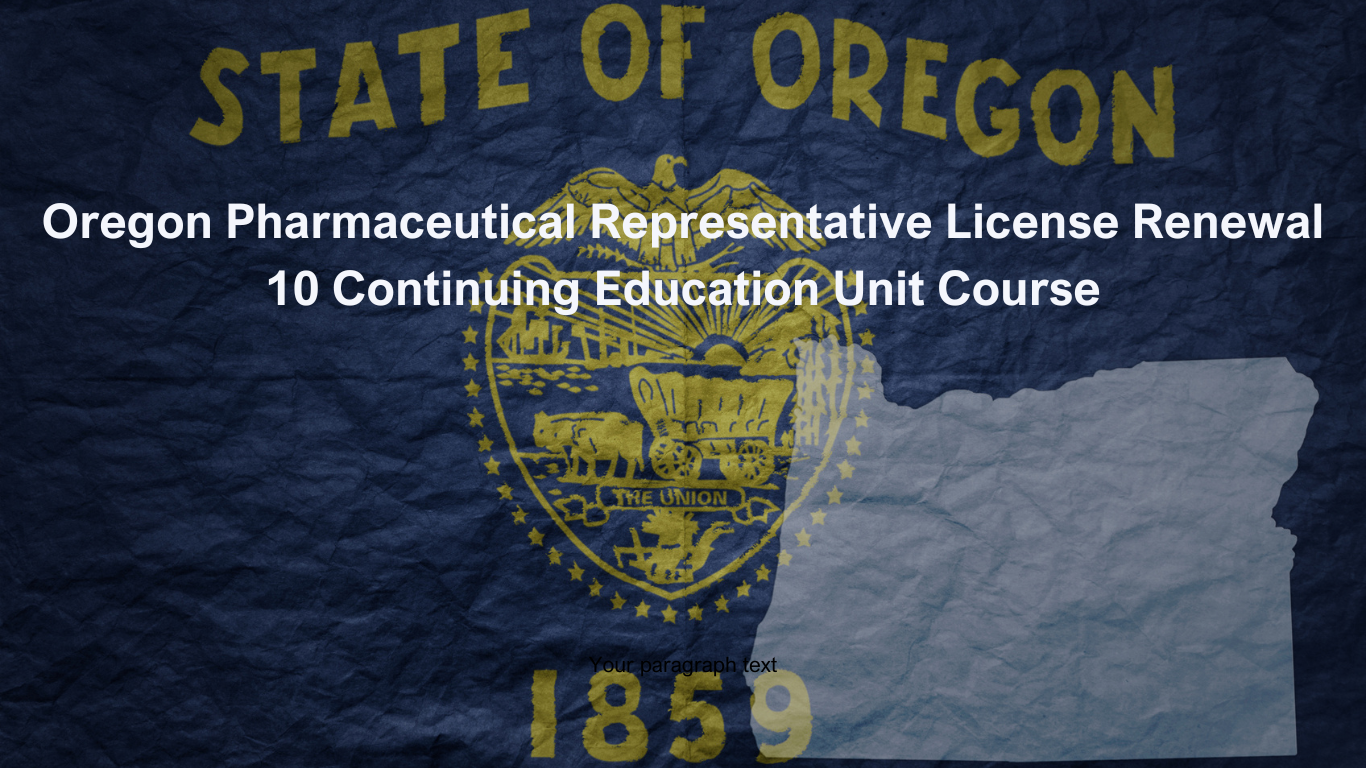State of Oregon Pharmaceutical Representative 10 Credit Pre-License Curriculum
This 10-credit curriculum is accredited by the Oregon licensing department and fulfills the requirements for the pre-license education. The curriculum consists of 7 courses each having an assessment. Upon completion of the curriculum, you will receive a Certificate of Completion which is required to complete your initial licensure.

State of Oregon Pharmaceutical Representative 10 Credit Pre-License Curriculum
This 10-credit curriculum is accredited by the Oregon licensing department and fulfills the requirements for the pre-license education. The curriculum consists of 7 courses each having an assessment. Upon completion of the curriculum, you will receive a Certificate of Completion which is required to complete your initial licensure.

State of Oregon Requirements*
Pre-license 10 PLE

